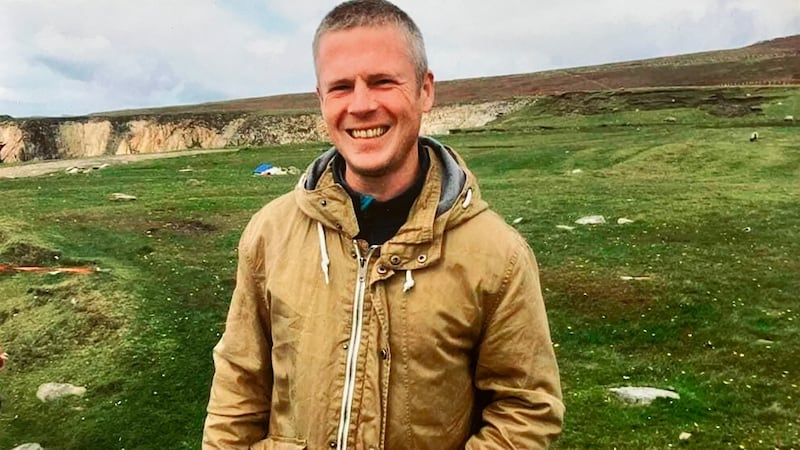The length of some of our ballot papers on polling day last week generated considerable comment. Twenty-eight inches is certainly notable, as was the case for the European Parliament election in the Midlands-North-West constituency, while nationally, the number of candidates standing in the local elections was 2,171.
We can glory in this manifestation of democracy, notwithstanding the scale of the task for vote counters, the number of transfers and the long wait for results as some candidates got over the line or fell before it on the 17th count. Such marathons have long been embraced in Ireland as noble. What former taoiseach Bertie Ahern memorably dismissed as our “stupid auld pencils” when he backed the doomed e-voting proposal, have proven remarkably durable.
On RTÉ radio, as the counting progressed last weekend, reporter Barry Lenihan became the political equivalent of renowned GAA commentator Micheál Ó Muircheartaigh, reeling off the candidates, their connections, reputations, foibles, feats and fates at great speed, with an acute awareness of what matters where and when at local level.
Such immersion in the parochial pool has always lent itself to satire, notably in Hall’s Pictorial Weekly on RTÉ in the 1970s. Some of the show’s phrases entered the national lexicon, such as “Ballymagash style politics”, a reference to the programme’s Ballymagash urban district councillors who were hardly designed to cover themselves in glory.
READ MORE
The following decade, writer and journalist Breandán Ó hEithir’s brilliant The Begrudger’s Guide to Irish Politics (1986), also lampooned the myopia: “RTÉ made many excellent programmes”, he wrote, “but it also established a practice, during election campaigns, of dissecting voting patterns in the most obscure corners of Ireland making them central to nothing on Earth apart from themselves ... How the people of Attythomaisreevy are going to vote and where their votes are going to ‘travel’ became all important in this type of spurious analysis. Indeed, all other issues are banished, apart from the weird political faction-fighting in which the people of this awful place, and their ancestors back to the times of O’Connell, were involved.”
[ Climate change should dwarf every other issue yet momentum is stallingOpens in new window ]
Beneath such parody lies a serious point, now more than ever. While we devote prolonged attention to election counts and trends and link them to possible manoeuvres regarding the timing of a general election and the make-up of the next government, we do not make enough linkages with the bigger picture. For all the preoccupation with the filling of 949 local council seats, there is insufficient debate about the dearth of real local government in Ireland.
Some of our state builders a century ago, with some justification, were disturbed at financial mismanagement and corruption at local level, but as historian Joe Lee cuttingly observed, the response was to severely curb the scope of local authorities, a trend that continued: “the congenial consequence of this blend of financial and moral rectitude was augmentation of the power and prestige of the central bureaucracy.”
There has been considerable interest in the experiment in Limerick city to directly elect a mayor, but it hardly amounts to much of a dent in the overall excessive centralisation. Much of the focus on the recent local elections remained on whether Fianna Fáil or Fine Gael would be top dog overall when it came to the number of council seats, rather than their roles.
In tandem, the contests to elect MEPs from Ireland have long been considered “second tier” elections, with insufficient attention to wider European affiliations and implications. The mantra has been “the centre is holding”, but it is clear Italy, France and Germany are experiencing the rise of dangerous populism and aggressive nationalism. It remains to be seen how united such national forces will be in Europe, but what will also be relevant is the extent to which those they have defeated will be tempted to mirror their messages and tactics.
Alarmingly, given the intensity of the climate emergency, the green faction in the new European Parliament is expected to be 53 out of 720 seats, pushing it into sixth place, compared to fourth in 2019. The leaders of the main Irish parties have been loud in hailing Irish centrism, but they also need to consider the juvenile, self-serving posturing by some of their representatives and candidates about climate policies and why the Greens have become convenient scapegoats through being honest about an undeniable reality that will impact us all. More broadly, how can a European Green Deal survive? And why is the Irish political gaze elsewhere?
Also notable was the strength of the vote for independent candidates in the local elections. While this might not reach the same heights in a general election, it is still likely there will be an unprecedented number of independent TDs in the next Dáil. Will the resultant push to cut deals with them further cement their focus on “nothing on Earth apart from themselves”?














